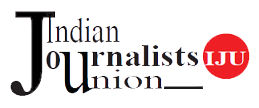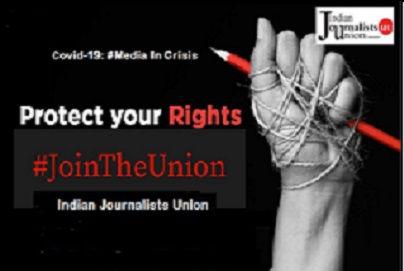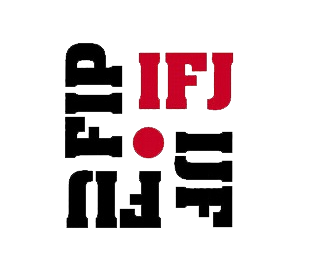10 January, 2020: The Indian Journalists Union welcomes the Supreme Court’s judgement putting in place procedural safeguards to check misuse of communication shutdown and Section 144 and reinforcing that freedom of speech and expression over the Internet is a Constitutional right.
However, it has failed to recognise the direct impact of the restrictions imposed in Kashmir as a violation of freedom of the Press.
The three-judge bench headed by Justice NV Ramana, while delivering its verdict on the petition of Anuradha Bhasin, Executive Editor of Kashmir Times, and others including the Indian Journalists Union, challenging the restrictions on journalists in the Valley, viewed the curbs as ‘chilling effect’ and not a direct violation of press freedom. The internet shutdown and restriction of movement under Section 144 in the Valley, said the IJU, has handicapped the journalists in carrying out their duties. The apex court failed to see that the blocking of all channels of communication such as landlines, mobile phones and internet services had severely hampered the journalists’ ability to receive and disseminate information and therefore impinged on press freedom, their right to freedom of speech and expression as well as the citizens’ right to information.
In a statement, IJU President Geetartha Pathak and Secretary General and IFJ Vice President Sabina Inderjit said that given that India is the world leader in internet shutdowns, the apex court’s directive that suspension of internet services indefinitely is “impermissible” under the Temporary Telecom Suspension Rules is welcome, it failed to appreciate the restrictive effect the restrictions had on press freedom and the journalists’ work to report and analyse. The Media Facilitation Centre established by the local authorities in Srinagar, they said was in no way a substitute for regular channels of communication.
Noting that the Supreme Court has laid down sound rights respecting principles and asked the J&K authorities to review all orders suspending internet services forthwith and that orders not in consonance with the law be revoked, the IJU hoped that the judgment would be implemented in its proper spirit and telecom services will be fully restored after the review exercise. Importantly, the IJU hoped the government makes a note of the apex court’s observation: “Responsible governments are required to respect the freedom at all times. Journalists are to be accommodated in reporting and there is no justification for allowing a sword of Damocles to hang over the press indefinitely.”





